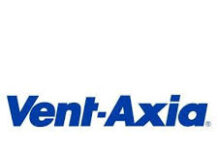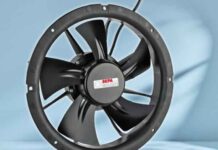
Delta marked its 17th consecutive participation in the 29th United Nations Climate Change Conference (UNFCCC COP29) held in Baku, Azerbaijan. This year, Delta co-hosted a side event on 21st with the American Institute of Architects (AIA), the Royal Institute of British Architects (RIBA), and the International Code Council (ICC), discussing how to leverage core technologies in developing energy-efficient building solutions.
Delta introduced its broad spectrum of power, thermal management, and infrastructure solutions for AI data centers, showcasing how its advanced liquid cooling technology helps clients achieve greener data centers with a Power Usage Effectiveness (PUE) 1.1.
Delta’s side event involved the collaboration of two major architectural institutes – the American Institute of Architects (AIA) and the Royal Institute of British Architects (RIBA – along with the International Code Council (ICC), which promotes the ‘Building Breakthrough’ initiative. The discussions focused on achieving net-zero and resilient buildings through technology, policy, standards, and innovative cooperation.
Illya Azaroff, a Director of the AIA, mentioned that resilient building designs not only safeguard human safety but also bring long-term value. For example, investing US$1 in resilient design can reduce US$6 in post-disaster costs. Mina Hasman, Co-Chair of the RIBA’s Climate Action Expert Advisory Group, emphasized that the government plays a key role in driving the market by setting ambitious targets, which helps implement policies. However, by sharing knowledge and expertise with the private sector, it is more likely to transcend borders and move toward net-zero future.








